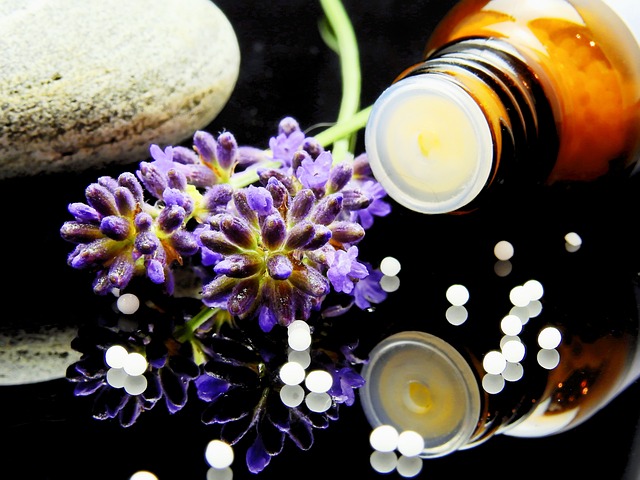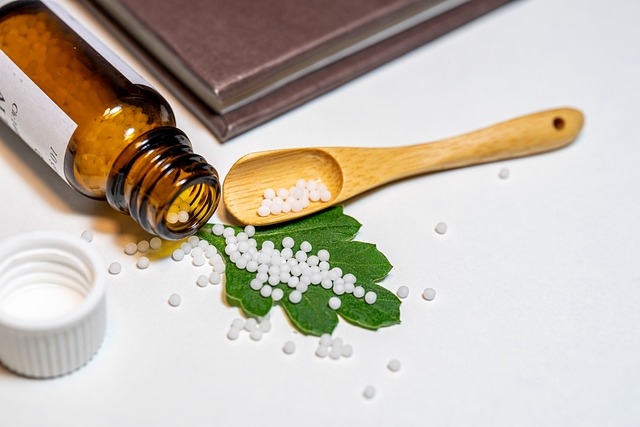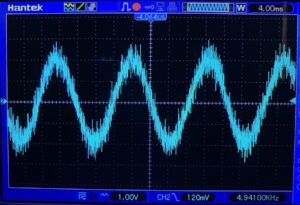Homeopathy for the Treatment of Depression and Anxiety

Homeopathy is a controversial treatment that was developed by Samuel Hahnemann in the early 1800s. Homeopathy is often termed a “pseudoscience,” since homeopathic preparation techniques do not follow standard scientific beliefs. The basic idea behind homeopathy is “like cures like.” In other words, if a substance causes symptoms in large quantities, it can be used to treat those symptoms when administered in much smaller quantities.
Like Cures Like
For example, if a person has a cold with watery eyes and a runny nose you could try to treat it with a homeopathic preparation of onion. Onion, in larger quantities, can cause a person to experience watery eyes and a runny nose. There obviously isn’t strong research in support of the like-cures-like concept, leading to the frequent disparagement and dismissal of homeopathy.
Homeopathic Preparations
Another aspect of homeopathy that is often attacked is the technique used for the preparation of homeopathic remedies. Each remedy is prepared through serial dilutions. To make a homeopathic remedy from onion, you would first make a full strength onion tincture. Then you’d take one part of this tincture to nine parts of water and shake the remedy to make a 1X potency. You’d follow the same procedure to make a 2X, a 3X a 4X and so on. For C potencies you dilute one part of the starting material with 99 parts of water. To make the final remedy, the dilutions are then applied to tiny sugar pellets, traditionally made from lactose.
From a scientific standpoint, the problem with this procedure is that most homeopathic remedies are diluted so far that they no longer contain a single atom of the original tincture. Opponents of homeopathy argue that there can’t possibly be any effects from these diluted formulas since none of the original material is left.
The Nature of Water and “Water Memory”
While I understand the many arguments against homeopathy, I would also point out that we are still expanding our scientific understanding of the nature of water. For example, a recent study discovered a new state of ice that, up until now, had been previously unknown (Rosu-Finsen 2023).
In an earlier blog, I explored the effects of exposing water to a magnetic field or “magnetized water.” Numerous studies have shown that a magnetic field can change some of the physical and chemical properties of water, and that these changes are retained over a period of time. And while controversial, there are many other studies that strongly suggest that water has some residual “memory-like” effects based on different types of exposures or treatments (Chaplin 2007). Of course, even if it is proven that water has “memory,” it does not automatically mean that homeopathy is effective. However, it should serve as a reminder to keep an open mind.
Homeopathy for Depression and Anxiety
Depression and anxiety disorders are common mental illnesses and a major cause of disability worldwide. Standard medications used for treatment have fairly poor efficacy with patients commonly having significant residual symptoms. As such, additional treatment options are needed to help patients struggling with depression and anxiety symptoms.
Early Clinical Research in the Medical Literature
While controversial, it’s worth exploring the research on homeopathy as a potential treatment for depression and anxiety. One of the earliest studies in the standard literature was a small trial of homeopathy for depression and anxiety in patients that did not want medications or who had responded poorly to them. In the study, half of patients had a clinical response to homeopathic treatment with the authors suggesting that homeopathy could be a useful approach (Davidson 1997).
In a separate placebo-controlled study on patients struggling with anxiety, homeopathy and placebo both reduced symptoms significantly. The homeopathic remedy decreased symptoms by 31%, while the placebo also reduced symptoms by 31%. The authors noted that improvements with both placebo and homeopathic treatment were “substantial.” They stated that such large placebo benefits may be why homeopathy is increasingly being utilized to treat mental health conditions (Bonne 2003).
A study on women with menopausal symptoms that included mental-emotional evaluations found that homeopathy reduced depressive symptoms by 65%. This reduction was almost identical to the improvement in symptoms found with antidepressant medication. In addition, side effects from homeopathy were mild and more tolerable (Wasilewski 2004). The authors even asserted that homeopathy could be considered a “placebo alternative” that provides symptom reduction similar to a standard placebo.
The first systematic review in 2005 came to the conclusion that better studies were needed to confirm whether or not homeopathy has a place in depression treatment (Pilkington 2005).
More Recent Clinical Studies

A double-blind clinical trial comparing antidepressant medication to homeopathy found the treatments to be of equal efficacy (Adler 2011). The homeopathic remedy was also found to be better tolerated with fewer side effects.
A real-world study from 2016 compared clinical outcomes of patients receiving standard care or homeopathic care for anxiety and depression. The study included 710 patients and found that homeopathy had small but significant benefits over standard care (Grimaldi-Bensouda 2016).
The most recent meta-analysis evaluating homeopathy in mental health disorders was unable to reach solid conclusions. The published studies currently available show a high risk of bias, which may have influenced positive outcomes. However, homeopathy did show greater efficacy than Prozac for treating mental-emotional symptoms associated with premenstrual syndrome and for treating major depressive disorder. Placebo-controlled trials for depression, in general, did not find benefits greater than placebo (Rotella 2020).
Conclusion
While currently inconclusive, the data appears to suggest minimal harm and—at the very least—strong placebo effects with homeopathic treatment. Considering the very modest benefits and significant side effects seen with standard antidepressant medications, I personally do not see the harm in considering homeopathic approaches when utilized for patients that can be safely managed with outpatient care.
Hopefully, further unbiased research can help to delineate if and how to best utilize homeopathy as a potential treatment option for patients.



